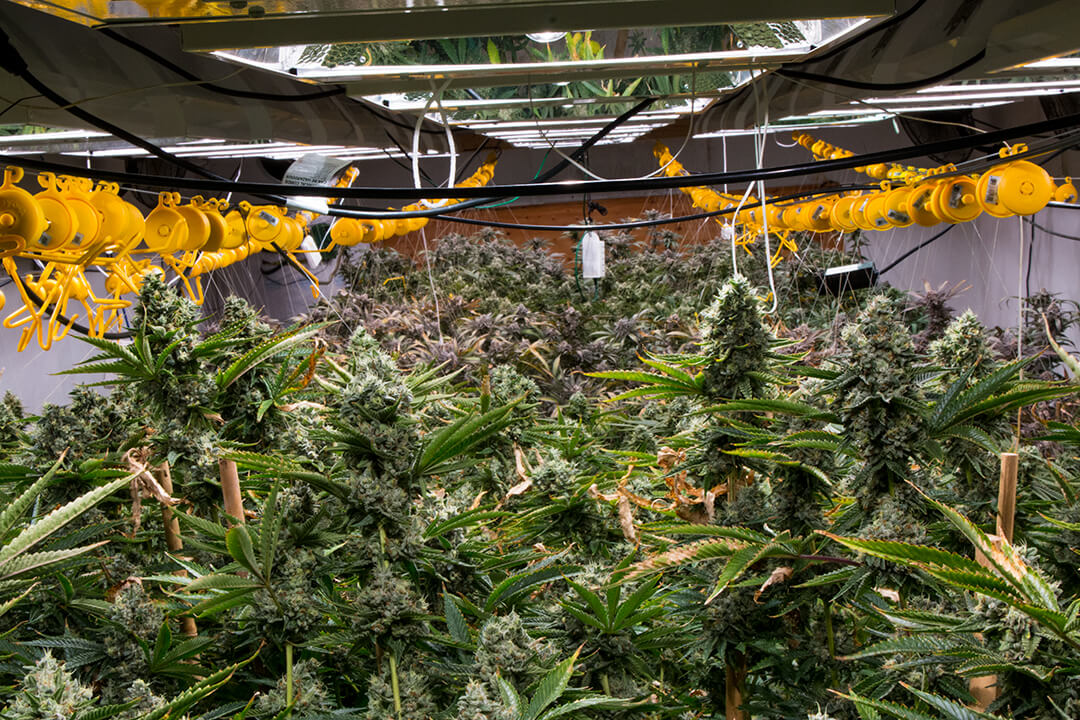
Marijuana is illegal under federal law, but a growing number of states have legalized the drug for medical or recreational purposes in recent years. The changing legal landscape has coincided with a dramatic increase in public support for legalization, which is favored by a majority of Americans.
Here are six facts about Americans and marijuana.
1. Around nine-in-ten Americans favor some form of marijuana legalization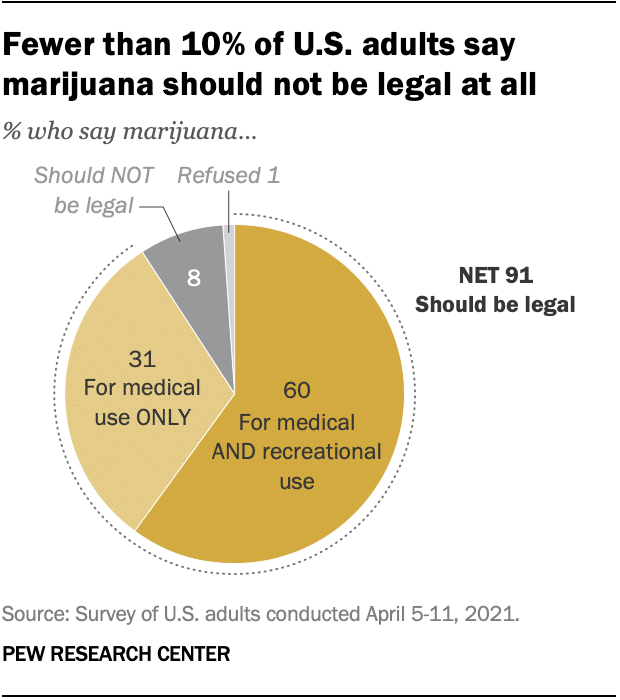
According to an April 2021 Pew Research Center survey. An overwhelming majority of U.S. adults (91%) say either that marijuana should be legal for medical and recreational use (60%) or that it should be legal for medical use only (31%). Just 8% say the drug should not be legal in any form.
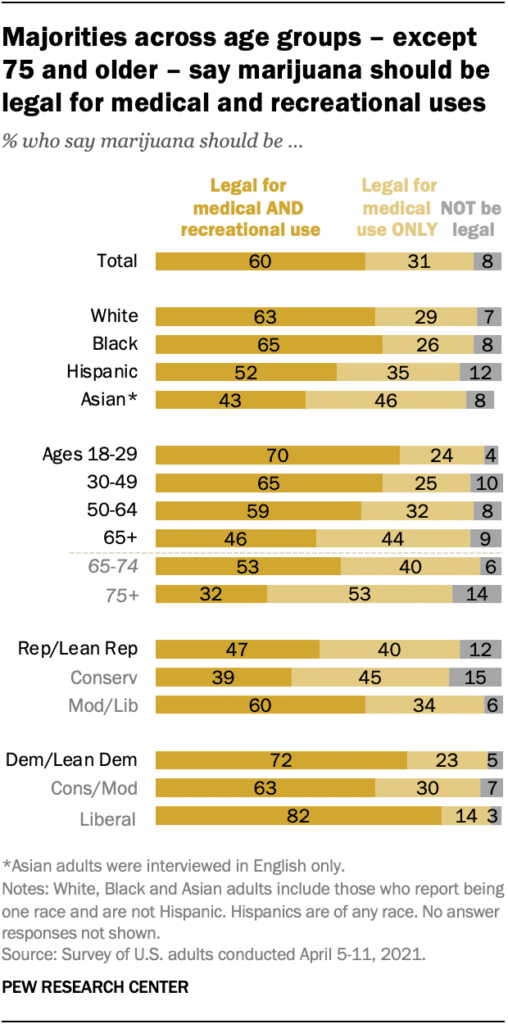 2. Public support for marijuana legalization differs widely by age and party.
2. Public support for marijuana legalization differs widely by age and party.
Older adults are far less likely than younger ones to support marijuana legalization for both recreational and medical uses, according to the April 2021 survey. For instance, just 32% of adults ages 75 and older say marijuana should be legal for recreational and medical use, by far the lowest share for any age category. By contrast, seven-in-ten adults under the age of 30 favor legalization for medical and recreational use.
Democrats and Democratic-leaning independents are more likely than Republicans and GOP leaners to support the legalization of marijuana for both purposes (72% vs. 47%).
3. There has been a dramatic increase in public support for marijuana legalization in the last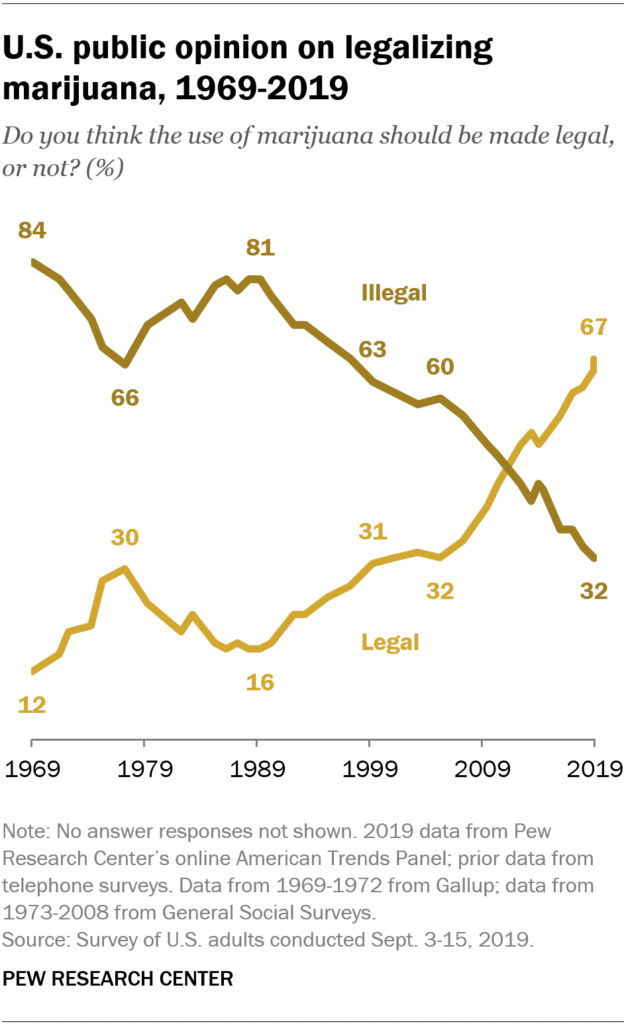 two decades.
two decades.
In addition to asking about the medical and recreational use of marijuana, the Center has also asked Americans a more general question about legalizing marijuana. In 2019, the last time the Center asked that question, two-thirds of adults expressed support for marijuana legalization, more than double the share who said so in 2000.
4. Supporters and opponents of marijuana legalization cite different reasons for their views.
Americans who favor legalization are most likely to point to the drug’s perceived medical benefits or to say it would free up law enforcement to focus on other types of crime; 86% and 70%, respectively, say these are very important reasons for their support, according to a Gallup survey conducted in spring 2019.
Among Americans who oppose marijuana legalization, 79% say a very important reason is that it would increase the number of car accidents involving drivers who use marijuana. Around seven-in-ten (69%) say a very important reason is that legalization would lead to more people using stronger and more addictive drugs.
5. Fewer than half (46%) of U.S. adults say they have ever used marijuana
According to the 2019 National Survey on Drug Use and Health. That is lower than the shares who say they have ever consumed alcohol (80%) or ever used tobacco products (61%).
While many Americans say they have ever used cannabis, far fewer are current users, according to the same 2019 survey: 18% of U.S. adults say they have used marijuana over the past year, while 11% say they have used the drug over the past month.
6. Seventeen states and the District of Columbia have legalized small amounts of marijuana for adult recreational use as of April 2021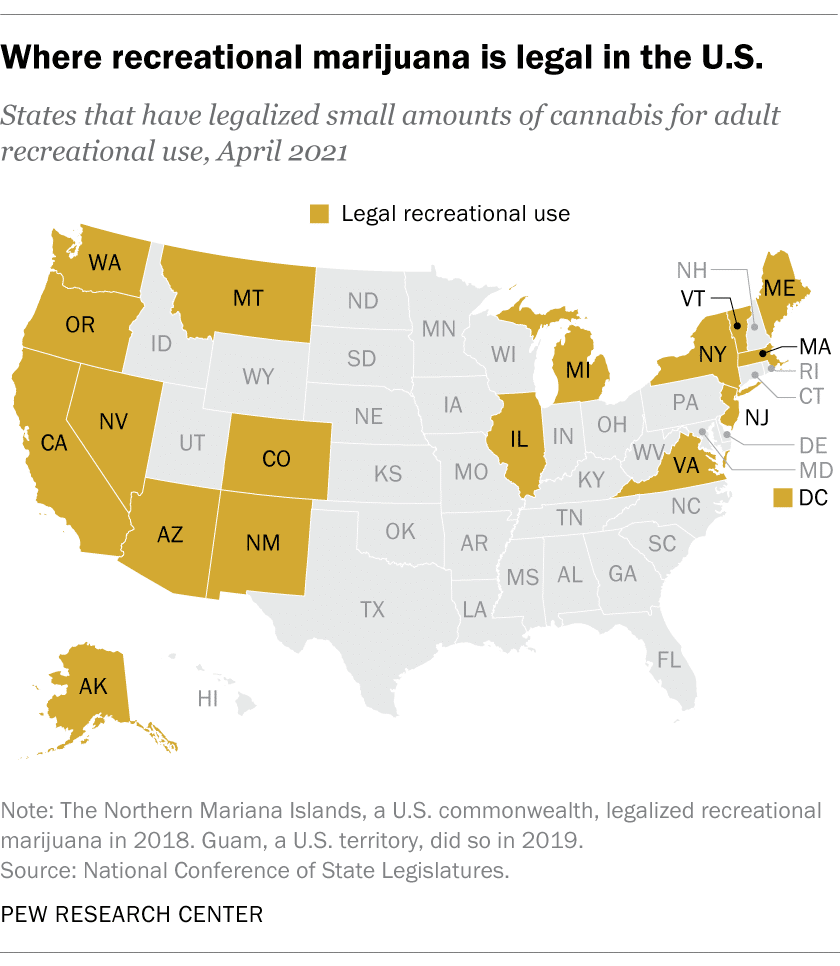
According to the National Conference of State Legislatures. This spring, New Mexico, New York and Virginia became the most recent states to do so. Overall, 43% of U.S. adults now live in a jurisdiction that has legalized the recreational use of marijuana at the local level, according to 2019 population estimates by the U.S. Census Bureau. Guam, a U.S. territory, legalized the recreational use of marijuana in 2019, and the Northern Mariana Islands, a U.S. commonwealth, did so in 2018.
Three dozen states, as well as D.C., Guam, Puerto Rico and the Virgin Islands, have approved some form of a medical marijuana program. Numerous states have also enacted laws reducing criminal penalties for certain marijuana-related convictions or allowing past convictions to be expunged.
Note: This is an update of a post originally published in November 2014.






